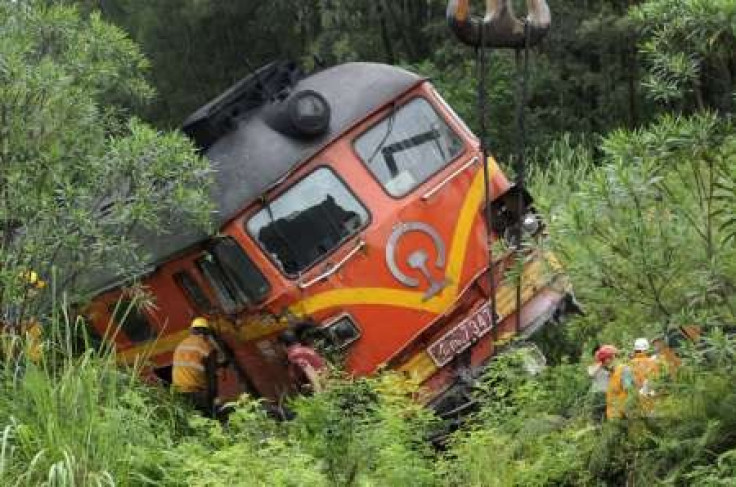China Train Crash: Fury Against the Government Amplifies

After facing public backlash over Saturday's deadly train crash, China's rail minister has ordered a two-month safety review of railway operations and apologized for the accident that killed 39 people, state media reported on Tuesday.
Internet users have flooded Web sites and microblogs with comments and critics of the government's handling of the accident following the crash in eastern China's Zhejiang province, the country's deadliest rail accident since 2008.
Following the crash Beijing, before knowing the cause of the crash sacked three middle-level railway officials, as it attempted to avoid critics.
However, reports of officials trying to bar Chinese media from questioning official accounts of the accident rapidly emerged and further fuelled the anger and suspicion among the people.
Attempting to prove that the government has now things under control, the Communist Party mouthpiece the People's Daily quoted Railways Minister Sheng Guangzu as saying a range of railway officials would be directed to work on front-line operations during the next two months and to learn from the accident.
He said the safety campaign will extend through the end of September and will focus on high-speed rail and passenger trains, such as implementing maintenance standards and reinforcing checks on power connections to pre-empt outages.
According to the minister, in the next few months, officials and workers alike will pay special attention to prevent accidents caused by flooding and inclement weather.
However, proving that the anger is unlikely to fade anytime soon, comments on China's popular Twitter-like microblogging site Weibo suggested the government will have to work very hard to subdue broad public anger at the crash.
In one online Weibo survey, 98 percent of more than 5,000 respondents answered "only devils could believe" the official death toll of 39.
"We've seen the kind-heartedness of the Chinese people (during this disaster) and the shameless avarice of those who govern us," wrote one person who goes by the name "well-behaved partition 57." "Those who lie to the great Chinese people should be made to pay the price."
Desperate to avoid further accusations, the government has now begun paying compensation to the victims' families, with the first family accepting 500,000 yuan ($77,500), according to state news agency Xinhua.
While the people are angry, the press it seems is also following suit and incriminating article have surfaced. The Global Times, for example, a widely read tabloid published by the People's Daily, questioned how China was able to develop so fast economically yet ignore safety standards taken for granted in the West.
"As the world is experiencing globalisation and integration, why can't China provide the same safety to its people?" it wrote.
But it also warned people not to jump to hasty conclusions.
"Criticism and punishment will certainly accelerate the process of becoming safer, yet blind and hasty finger-pointing should be avoided. China's development at this stage cannot be perfect."
The ministry is still investigating the cause of the accident, but state media said a bullet train hit another express that lost power following a lightning strike.
It was also reported that a power failure knocked out an electronic safety system designed to alert conductors about stalled locomotives on the line.
The accident has raised concerns about the safety of the country's high-profile and fast-growing rail network as it follows a string of other transport related accidents.
© Copyright IBTimes 2024. All rights reserved.





